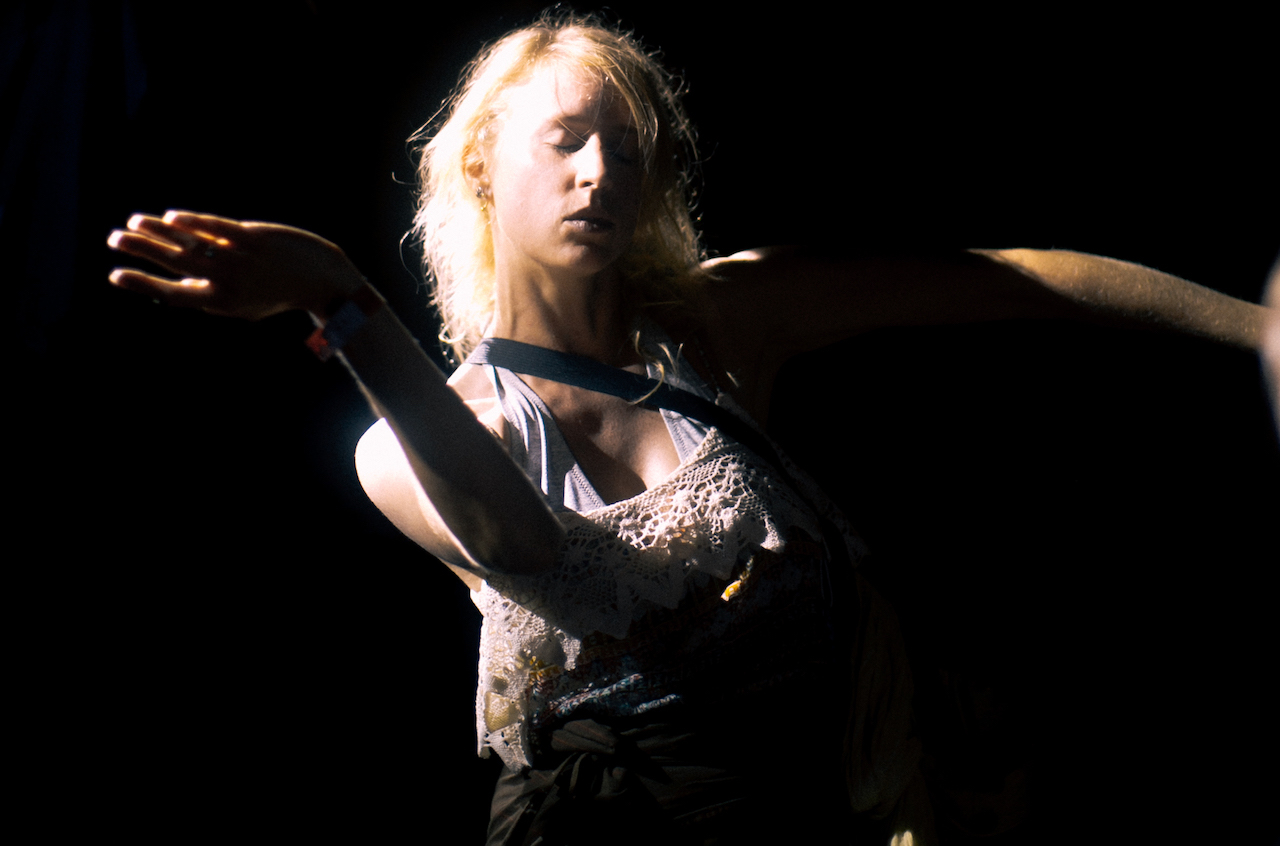- Tom Faber visits the Moroccan festival working hard to showcase the country's rich local culture.
- "Hey yo, I got a lot of beautiful ladies in front of me." The evening's host gestured excitedly to the young women before him in the crumbling amphitheatre. The members of Bnat Timbouktou were indeed beautiful, standing beneath a sand-coloured moon with long white robes and dark headbands embroidered with seashells. Their lead singer, Asmâa Hamzaoui, held a gimbri, a three-stringed lute played in traditional gnawa music, while her singers clutched krakebs—iron castanets. Their chanting and mesmeric rhythms seemed to gain power with each repetition, transfixing the audience of young Europeans and Moroccans.
Only one other act on the opening night of Atlas Electronic 2018 elicited such avid attention from the crowd: Ninos Du Brasil, who performed live. They could hardly have looked more different from the gnawa group: two Italian men standing behind drum kits, their faces painted white and their heads wrapped clumsily in red tinsel. Over a furious onslaught of percussion, they screamed and crowd-surfed, at one point even handing out drumsticks for audience members to join the cacophony. At the set's peak, one of the pair mentioned a common confusion about the band—they're Italian, but play Brazilian rhythms. Just before launching into another riotous drum solo, he screamed out: "Well who gives a fuck where we're from?"
Diverse programming and a nuanced approach to cultural exchange are quickly becoming calling cards of Atlas Electronic. Audience members who heard gnawa next to techno could hardly fail to notice the shared DNA between the genres, in their hypnotic rhythms, wandering basslines and spare melodies. As the Tunisian artist Deena Abdelwahed, who was dancing next to me, said: "It's all body music."
Electronic music has been popular in Morocco since the early '00s, though, until recently, it's largely been the domain of psytrance festivals in the Sahara and VIP clubs with bottle service. While a few local collectives have sprung up of late, such as Plug-In Souls, V.I.V. and Casa Voyager, most quality electronic music in the country is heard at its three major festivals: Atlas, Oasis and Moga. "Having big names every weekend in a club is not something we're used to here," Casablancan DJ Yasmean told me. "Festivals replace the empty feeling we have of not enjoying the artists we love enough through the year."
Atlas has stayed in the same location since its first edition, and it's easy to see why. Villa Janna is an oasis of green in the dusty outskirts of Marrakech, with four distinct stages that each serve a different mood. It's small enough to feel familiar after ten minutes, but there are plenty of nooks and rooftops to explore. I especially appreciated the fact that at every stage there are spaces to sit and watch the music, which felt necessary over four days of dancing.
There were too many musical highlights to name. While the Hessle Audio trio held down the main stage with a solid six-hour back-to-back on Friday, there were many surprises elsewhere, from Mad Miran's furious drum & bass set on the Red Light Radio rooftop to Yasmean's slick set of UK-leaning cuts and Deena Abdelwahed's remorseless assault of futuristic rhythms. I couldn't tear myself away from RAMZi, who played live and then DJ'd by the pool, her aerated selections bristling with environmental details despite some choppy mixing.
Saturday was so humid that rain felt inevitable. As the storm broke, it whipped up tornados of sand in the amphitheatre, forcing many to take cover and batten down the billowing tarps and tents. But 15-odd dancers remained splashing barefoot in the mud as the French DJ Cheb Gero leaned into a celebratory selection of Arabic music. That night, while Jamie xx and John Talabot headlined the amphitheatre, the Lyon crew Brothers From Different Mothers took over Pool Stage with huge energy. Especially impressive was OKO DJ, who took the crowd from Italo to ragga to curdled techno in one dizzying sequence, and Simo Cell's back-to-back with Judaah. The pair pushed each other harder and harder, faster and faster, until the tension broke with a raucous response to Craig David's "Rewind."
On Sunday evening, a small crowd gathered on the Red Light Radio rooftop to see the desert blues band Génération Taragalte. They performed as the pale gold disk of the sun slipped behind palms and pylons on the horizon. Later, Driss Bennis, head of the local label Casa Voyager, received a hero's welcome, playing a sleek selection of pumping electro and ghetto tech to an electrified crowd. Lena Willikens played two excellent sets: atmospheric downtempo on the rooftop and a masterclass of ravey techno at Pool Stage, displaying her rare grasp on pacing and dynamics. That said, while the music quality was high throughout the weekend, the festival sometimes suffered from what felt like a short attention span: genre and mood would change so fast that it could be hard to settle into a groove, both in terms of the individual sets and the wider programming.
All three of Morocco's major electronic festivals involve Western organisers, which means a sensitive approach is required when considering how local culture is presented. The Atlas team clearly think very hard about this, introducing a programme of talks, visual art, local handicrafts and a drum tent where festivalgoers can learn gnawa rhythms. Several Moroccan DJs told me that the set they played was one of their favourites ever. "They really give you the opportunity to be yourself behind the decks," said Yasmean. "I've never felt so free to be who I really am when it comes to music."
The question remains of whether these festivals can help Morocco's homegrown scene take off. Several local DJs I spoke to suggested that the club scene hasn't changed much since dance festivals began. "Throughout the year, the scene is kind of timid," said Yasmean. While locals gain valuable experience from the festivals, the Moroccan scene will only solidify when locals begin taking their own risks. "At the end of the day," she said, "this scene is born because of its local heroes. We need a community who is willing to lose sleep, money and sweat to keep making history."
Yet no one should burden Atlas with the expectation of midwifing a local scene single-handedly. As a festival with a world-class music programme and an obvious love for Moroccan culture, it barely put a foot wrong. Putting on an event of this kind in a place like Morocco is a balancing act. It's about helping punters feel safe but also free. About introducing foreigners to local culture without sacrificing authenticity. And about hosting international stars while providing a platform for local talent—showcasing the best parts of this rich country while also nurturing it and giving back. It's a huge amount to juggle, but Atlas nailed it.
Photo credit /
Tim Buiting - All except Dancing girl
Laisa Maria - Dancing girl
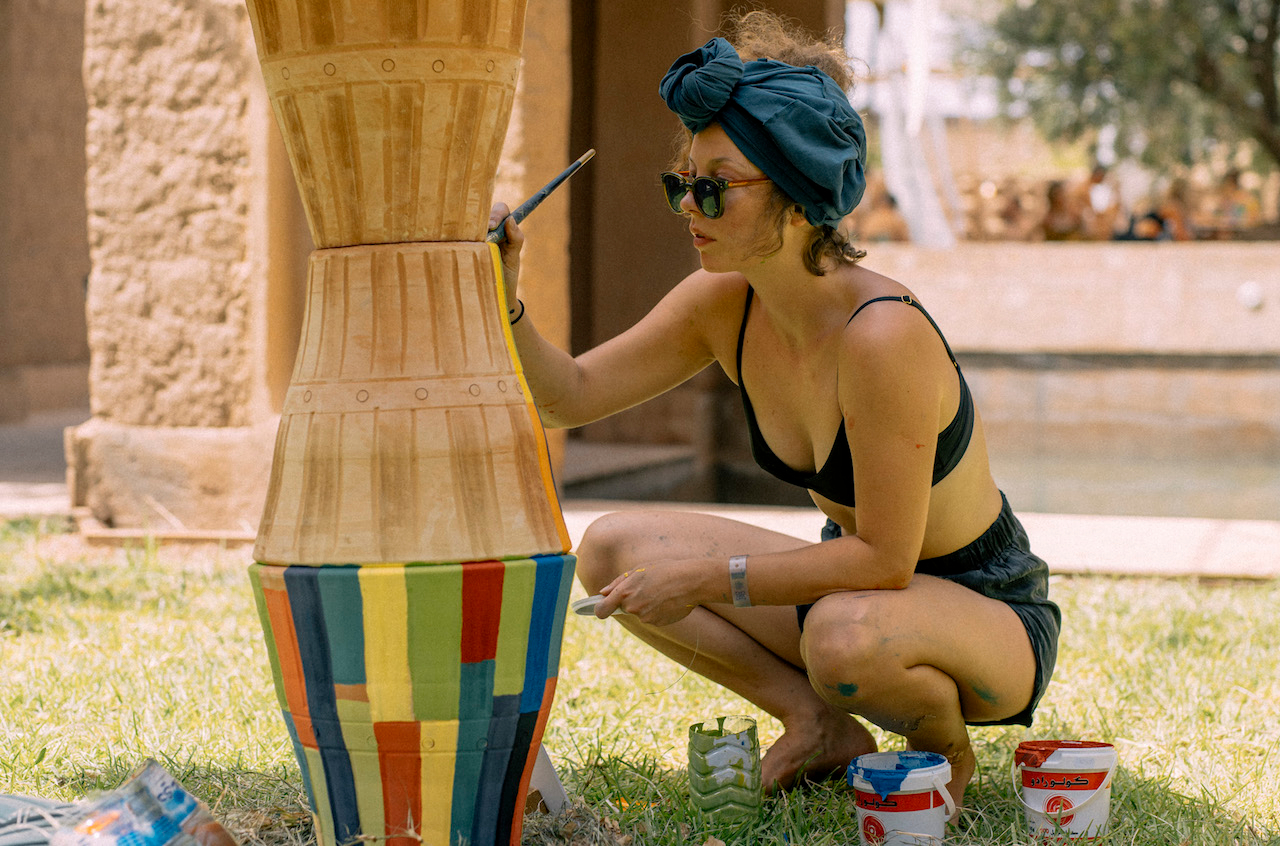 Electronic music has been popular in Morocco since the early '00s, though, until recently, it's largely been the domain of psytrance festivals in the Sahara and VIP clubs with bottle service. While a few local collectives have sprung up of late, such as Plug-In Souls, V.I.V. and Casa Voyager, most quality electronic music in the country is heard at its three major festivals: Atlas, Oasis and Moga. "Having big names every weekend in a club is not something we're used to here," Casablancan DJ Yasmean told me. "Festivals replace the empty feeling we have of not enjoying the artists we love enough through the year." Atlas has stayed in the same location since its first edition, and it's easy to see why. Villa Janna is an oasis of green in the dusty outskirts of Marrakech, with four distinct stages that each serve a different mood. It's small enough to feel familiar after ten minutes, but there are plenty of nooks and rooftops to explore. I especially appreciated the fact that at every stage there are spaces to sit and watch the music, which felt necessary over four days of dancing.
Electronic music has been popular in Morocco since the early '00s, though, until recently, it's largely been the domain of psytrance festivals in the Sahara and VIP clubs with bottle service. While a few local collectives have sprung up of late, such as Plug-In Souls, V.I.V. and Casa Voyager, most quality electronic music in the country is heard at its three major festivals: Atlas, Oasis and Moga. "Having big names every weekend in a club is not something we're used to here," Casablancan DJ Yasmean told me. "Festivals replace the empty feeling we have of not enjoying the artists we love enough through the year." Atlas has stayed in the same location since its first edition, and it's easy to see why. Villa Janna is an oasis of green in the dusty outskirts of Marrakech, with four distinct stages that each serve a different mood. It's small enough to feel familiar after ten minutes, but there are plenty of nooks and rooftops to explore. I especially appreciated the fact that at every stage there are spaces to sit and watch the music, which felt necessary over four days of dancing.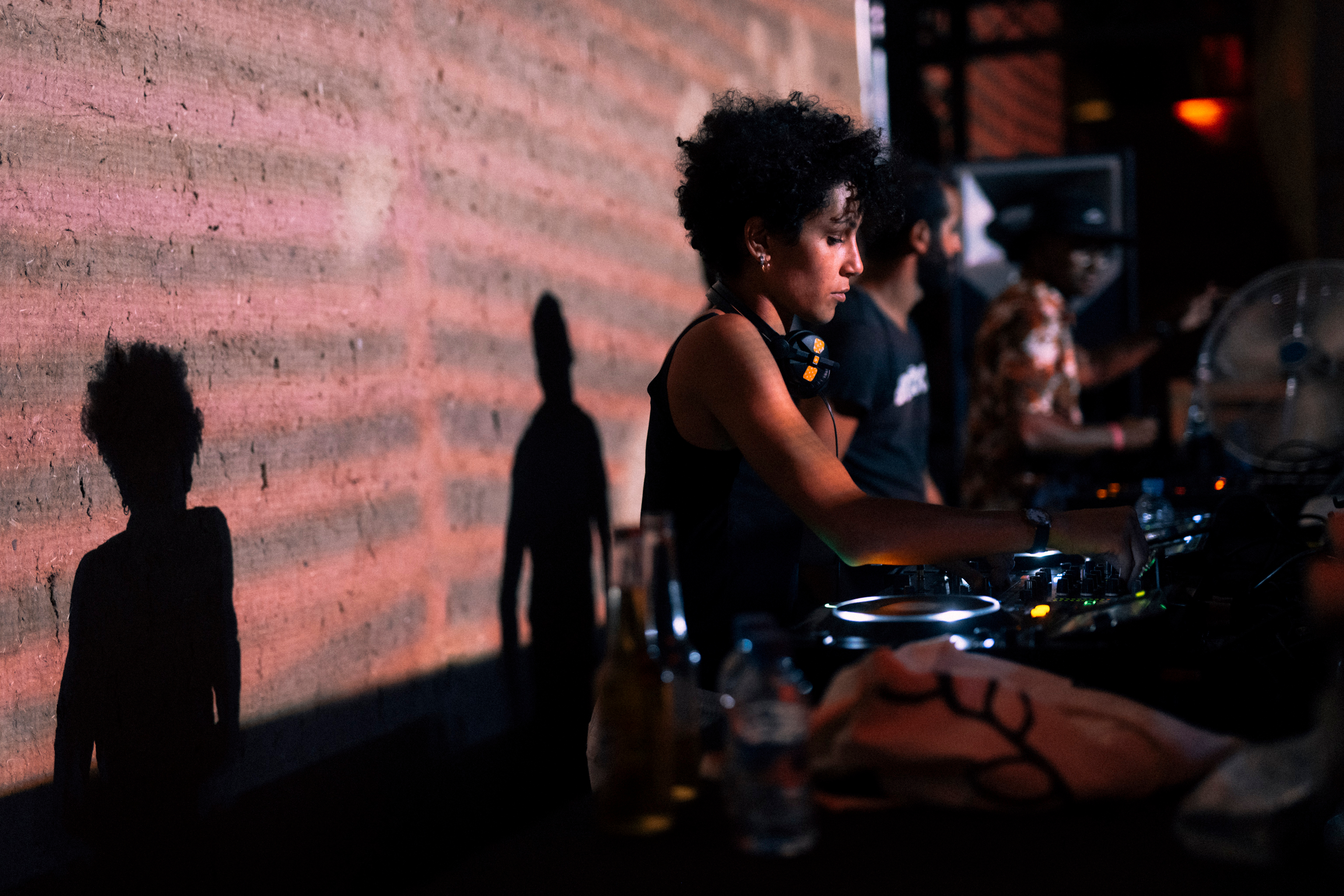
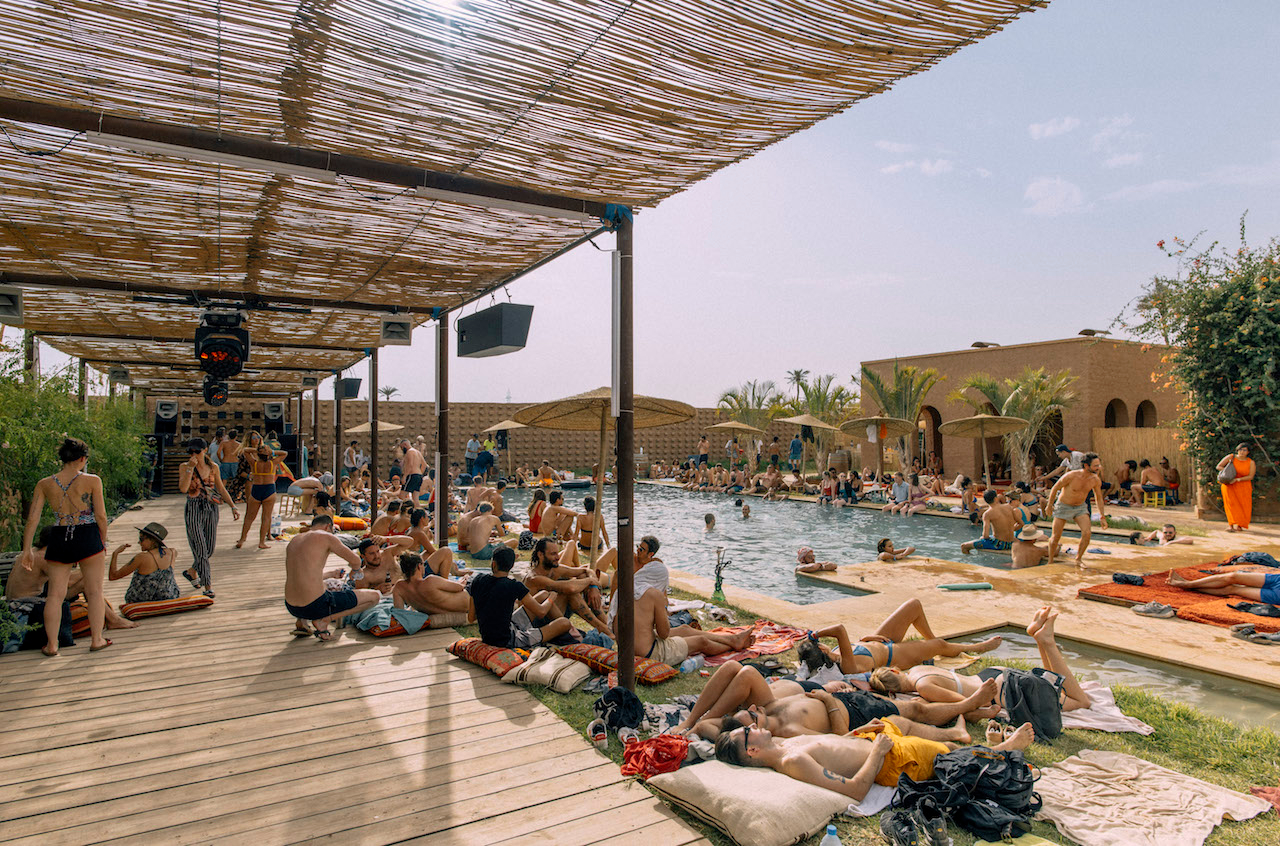 There were too many musical highlights to name. While the Hessle Audio trio held down the main stage with a solid six-hour back-to-back on Friday, there were many surprises elsewhere, from Mad Miran's furious drum & bass set on the Red Light Radio rooftop to Yasmean's slick set of UK-leaning cuts and Deena Abdelwahed's remorseless assault of futuristic rhythms. I couldn't tear myself away from RAMZi, who played live and then DJ'd by the pool, her aerated selections bristling with environmental details despite some choppy mixing. Saturday was so humid that rain felt inevitable. As the storm broke, it whipped up tornados of sand in the amphitheatre, forcing many to take cover and batten down the billowing tarps and tents. But 15-odd dancers remained splashing barefoot in the mud as the French DJ Cheb Gero leaned into a celebratory selection of Arabic music. That night, while Jamie xx and John Talabot headlined the amphitheatre, the Lyon crew Brothers From Different Mothers took over Pool Stage with huge energy. Especially impressive was OKO DJ, who took the crowd from Italo to ragga to curdled techno in one dizzying sequence, and Simo Cell's back-to-back with Judaah. The pair pushed each other harder and harder, faster and faster, until the tension broke with a raucous response to Craig David's "Rewind."
There were too many musical highlights to name. While the Hessle Audio trio held down the main stage with a solid six-hour back-to-back on Friday, there were many surprises elsewhere, from Mad Miran's furious drum & bass set on the Red Light Radio rooftop to Yasmean's slick set of UK-leaning cuts and Deena Abdelwahed's remorseless assault of futuristic rhythms. I couldn't tear myself away from RAMZi, who played live and then DJ'd by the pool, her aerated selections bristling with environmental details despite some choppy mixing. Saturday was so humid that rain felt inevitable. As the storm broke, it whipped up tornados of sand in the amphitheatre, forcing many to take cover and batten down the billowing tarps and tents. But 15-odd dancers remained splashing barefoot in the mud as the French DJ Cheb Gero leaned into a celebratory selection of Arabic music. That night, while Jamie xx and John Talabot headlined the amphitheatre, the Lyon crew Brothers From Different Mothers took over Pool Stage with huge energy. Especially impressive was OKO DJ, who took the crowd from Italo to ragga to curdled techno in one dizzying sequence, and Simo Cell's back-to-back with Judaah. The pair pushed each other harder and harder, faster and faster, until the tension broke with a raucous response to Craig David's "Rewind."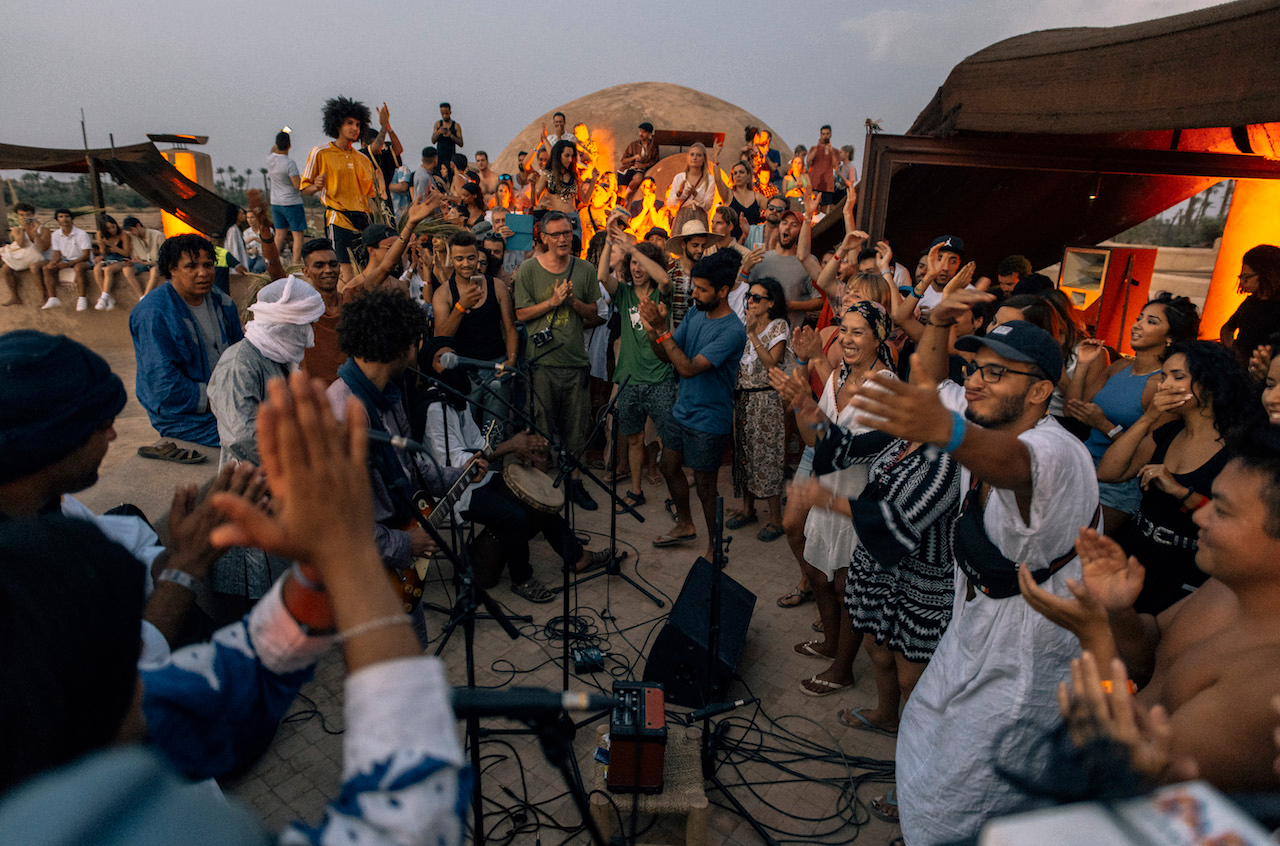
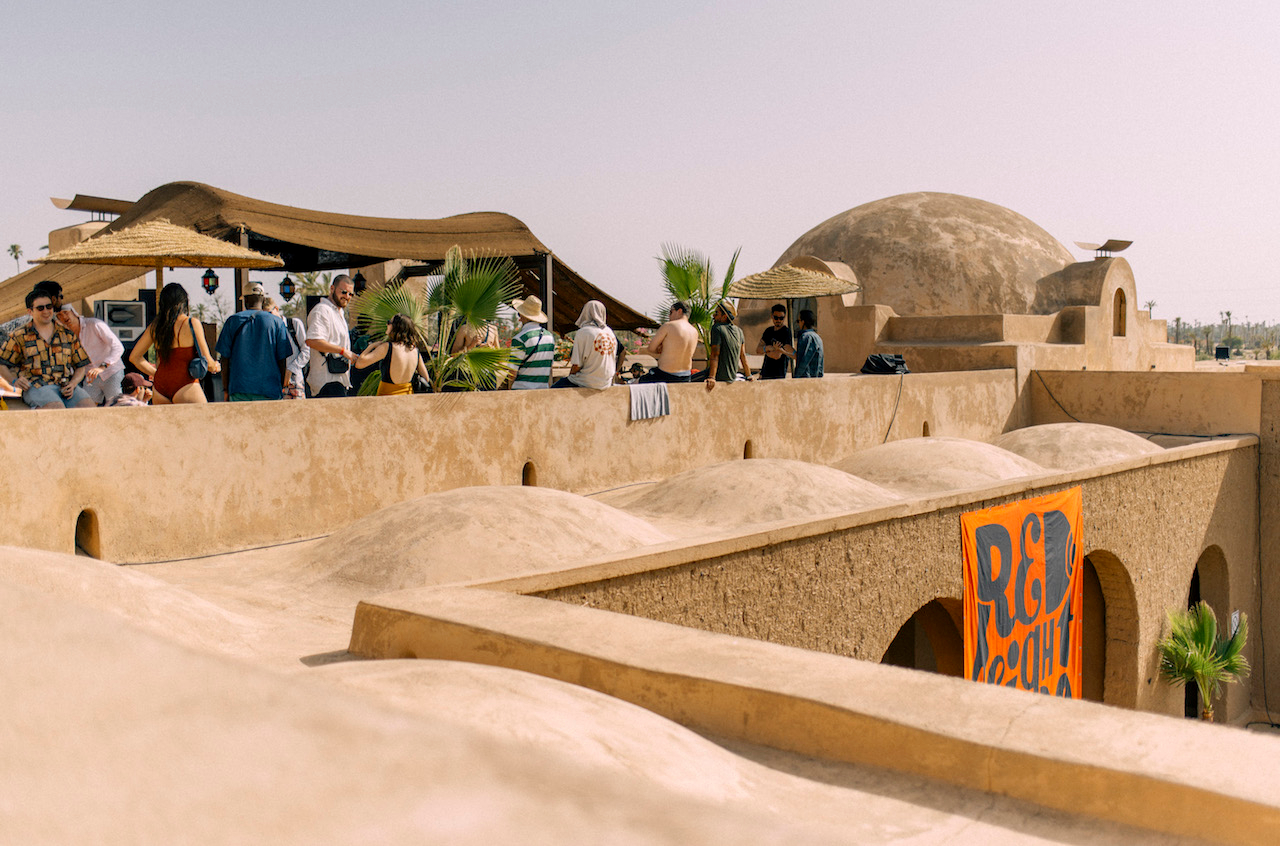 On Sunday evening, a small crowd gathered on the Red Light Radio rooftop to see the desert blues band Génération Taragalte. They performed as the pale gold disk of the sun slipped behind palms and pylons on the horizon. Later, Driss Bennis, head of the local label Casa Voyager, received a hero's welcome, playing a sleek selection of pumping electro and ghetto tech to an electrified crowd. Lena Willikens played two excellent sets: atmospheric downtempo on the rooftop and a masterclass of ravey techno at Pool Stage, displaying her rare grasp on pacing and dynamics. That said, while the music quality was high throughout the weekend, the festival sometimes suffered from what felt like a short attention span: genre and mood would change so fast that it could be hard to settle into a groove, both in terms of the individual sets and the wider programming. All three of Morocco's major electronic festivals involve Western organisers, which means a sensitive approach is required when considering how local culture is presented. The Atlas team clearly think very hard about this, introducing a programme of talks, visual art, local handicrafts and a drum tent where festivalgoers can learn gnawa rhythms. Several Moroccan DJs told me that the set they played was one of their favourites ever. "They really give you the opportunity to be yourself behind the decks," said Yasmean. "I've never felt so free to be who I really am when it comes to music."
On Sunday evening, a small crowd gathered on the Red Light Radio rooftop to see the desert blues band Génération Taragalte. They performed as the pale gold disk of the sun slipped behind palms and pylons on the horizon. Later, Driss Bennis, head of the local label Casa Voyager, received a hero's welcome, playing a sleek selection of pumping electro and ghetto tech to an electrified crowd. Lena Willikens played two excellent sets: atmospheric downtempo on the rooftop and a masterclass of ravey techno at Pool Stage, displaying her rare grasp on pacing and dynamics. That said, while the music quality was high throughout the weekend, the festival sometimes suffered from what felt like a short attention span: genre and mood would change so fast that it could be hard to settle into a groove, both in terms of the individual sets and the wider programming. All three of Morocco's major electronic festivals involve Western organisers, which means a sensitive approach is required when considering how local culture is presented. The Atlas team clearly think very hard about this, introducing a programme of talks, visual art, local handicrafts and a drum tent where festivalgoers can learn gnawa rhythms. Several Moroccan DJs told me that the set they played was one of their favourites ever. "They really give you the opportunity to be yourself behind the decks," said Yasmean. "I've never felt so free to be who I really am when it comes to music."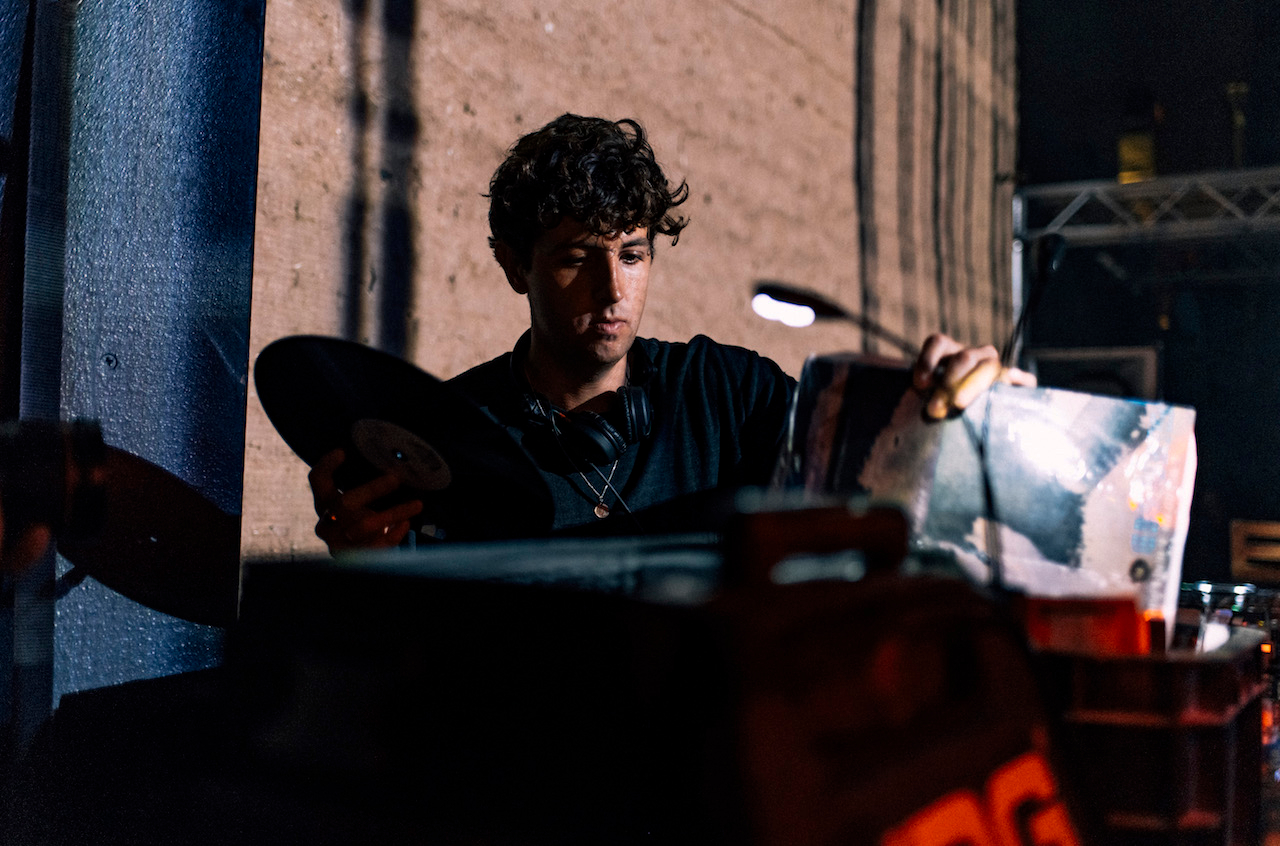
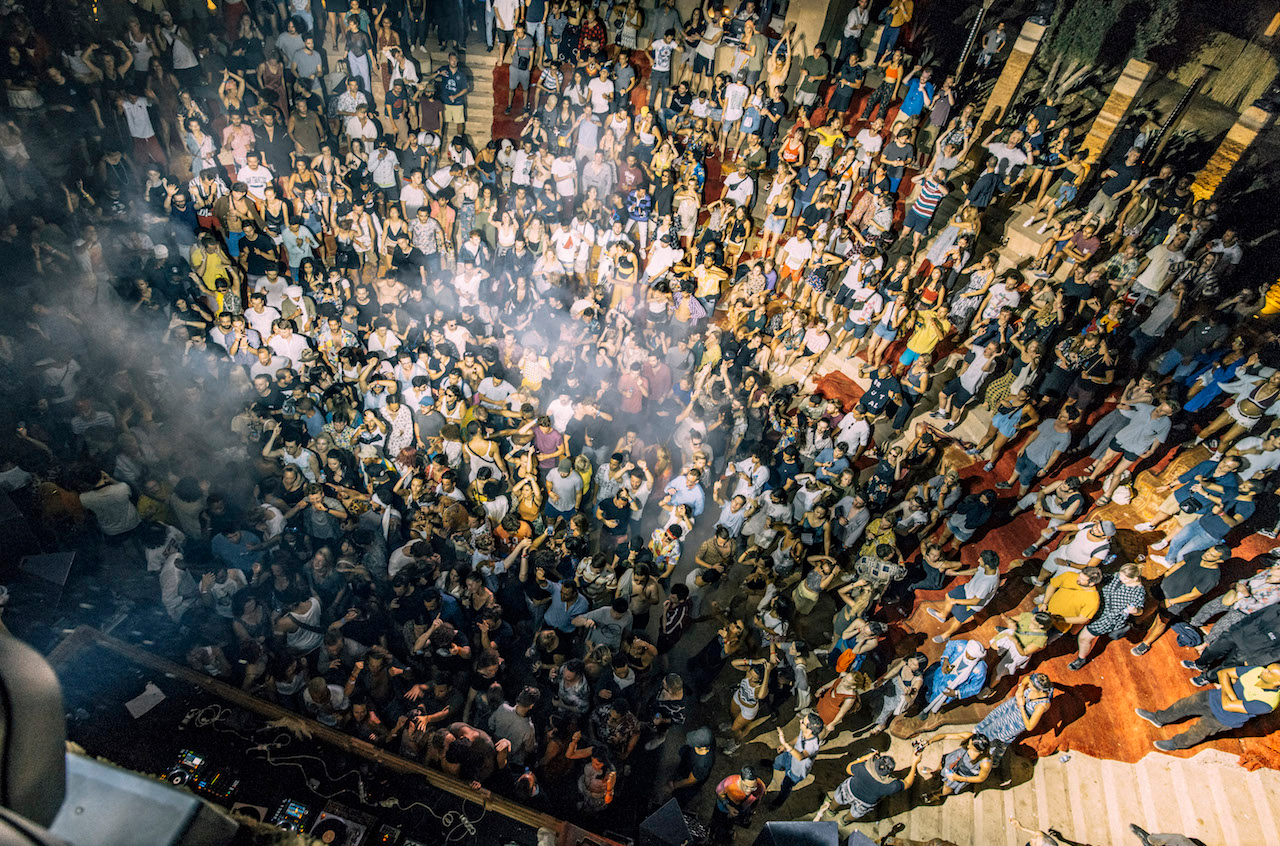 The question remains of whether these festivals can help Morocco's homegrown scene take off. Several local DJs I spoke to suggested that the club scene hasn't changed much since dance festivals began. "Throughout the year, the scene is kind of timid," said Yasmean. While locals gain valuable experience from the festivals, the Moroccan scene will only solidify when locals begin taking their own risks. "At the end of the day," she said, "this scene is born because of its local heroes. We need a community who is willing to lose sleep, money and sweat to keep making history." Yet no one should burden Atlas with the expectation of midwifing a local scene single-handedly. As a festival with a world-class music programme and an obvious love for Moroccan culture, it barely put a foot wrong. Putting on an event of this kind in a place like Morocco is a balancing act. It's about helping punters feel safe but also free. About introducing foreigners to local culture without sacrificing authenticity. And about hosting international stars while providing a platform for local talent—showcasing the best parts of this rich country while also nurturing it and giving back. It's a huge amount to juggle, but Atlas nailed it. Photo credit / Tim Buiting - All except Dancing girl Laisa Maria - Dancing girl
The question remains of whether these festivals can help Morocco's homegrown scene take off. Several local DJs I spoke to suggested that the club scene hasn't changed much since dance festivals began. "Throughout the year, the scene is kind of timid," said Yasmean. While locals gain valuable experience from the festivals, the Moroccan scene will only solidify when locals begin taking their own risks. "At the end of the day," she said, "this scene is born because of its local heroes. We need a community who is willing to lose sleep, money and sweat to keep making history." Yet no one should burden Atlas with the expectation of midwifing a local scene single-handedly. As a festival with a world-class music programme and an obvious love for Moroccan culture, it barely put a foot wrong. Putting on an event of this kind in a place like Morocco is a balancing act. It's about helping punters feel safe but also free. About introducing foreigners to local culture without sacrificing authenticity. And about hosting international stars while providing a platform for local talent—showcasing the best parts of this rich country while also nurturing it and giving back. It's a huge amount to juggle, but Atlas nailed it. Photo credit / Tim Buiting - All except Dancing girl Laisa Maria - Dancing girl